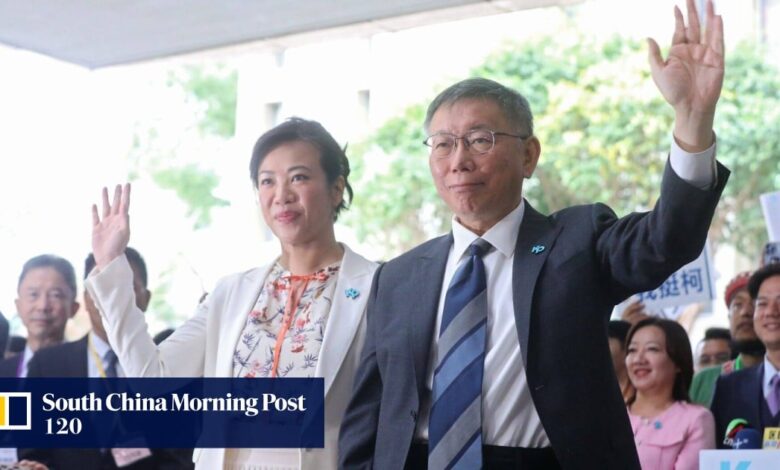Taiwan’s TPP candidate Ko Wen-je registers for presidential run, ending joint ticket hopes

Ko has chosen TPP legislator Wu Hsin-Ying as his running mate, on a ticket that does not include Kuomintang, the largest opposition party. He arrived at the registration booth minutes after 11am on Friday, hours before the official deadline for candidates to register.
The submission follows talks between the KMT and TPP on forming a joint “blue-white” ticket – named after their respective party colours – which have been going on since October.
KMT’s candidate Hou Yu-ih said he would also finish the registration with the election authorities on Friday morning. Hou’s running mate is fellow KMT member and former legislator Jaw Shaw-kong, CEO and chairman of Broadcasting Corporation of China, who also hosts a political programme on another TV station.
Taiwanese opposition stay deadlocked over joint ticket as deadline looms
Taiwanese opposition stay deadlocked over joint ticket as deadline looms
On Sunday Ko, vowed to “continue to fight to the end in his capacity as the TPP presidential candidate” and visited Gou, who is currently trailing the others in the polls. In a Facebook post on Thursday he said he had given Gou a “formal invitation” to “carefully consider integrating the opposition parties” without providing details.
Lai, who has been the front runner since he won the party’s nomination in April, has promised to continue the friendly policies that President Tsai Ing-wen has adopted towards the US, in which Hsiao played a major role as the de facto ambassador to Washington.
The US, in common with most countries, does not officially recognise Taiwan as an independent state, but opposes a forcible change in the status quo and is legally bound to help the island defend itself.
But victory for the DPP will do nothing to improve relations with Beijing, which regards Taiwan as a breakaway province that must be reunited with the mainland – by force if necessary.
Cross-strait relations began to deteriorate in 2016 after Tsai was elected president and refused to accept the 1992 consensus, an informal agreement between the two sides that there is only one China, although the two sides may disagree what that means.
Taiwan’s presidential election will be held on January 13 along with the legislative elections.





